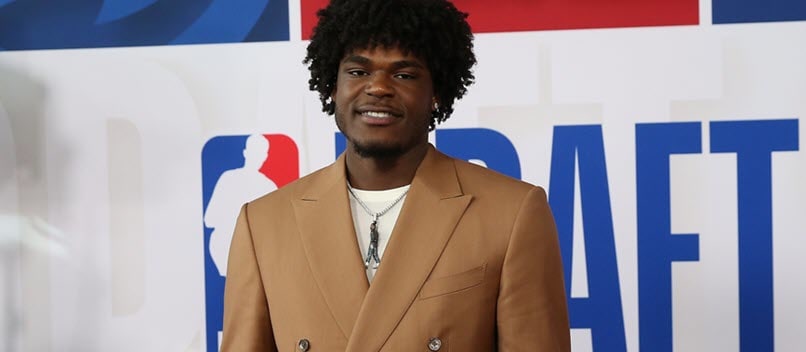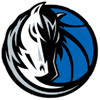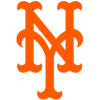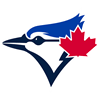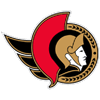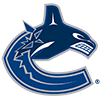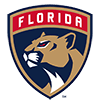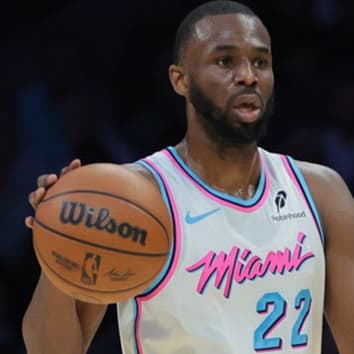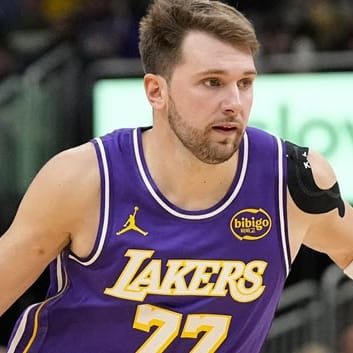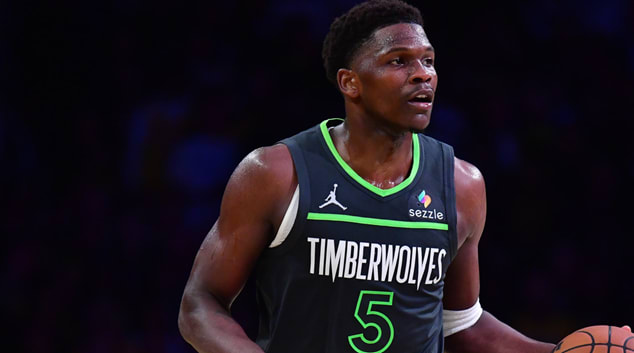With Summer League completed, professional careers are fully underway for 2023 draftees. Even within the context of a small sample size and on-the-fly team chemistry, I value how a player acclimates to a new environment; Do signatures parts of his game flash? How is he incorporated into the offense? What weaknesses are most notable? Below, I'll dive into some key takeaways and projectability from some 2023 top picks.
Notes: Portland's Scoot Henderson (shoulder) and Houston's Amen Thompson (ankle) suffered minor injuries in their first contest, but both showcased glimpses of star power and rare abilities. Ninth overall pick Taylor Hendricks was out due to a right hamstring strain.
Victor Wembanyama, San Antonio Spurs
Stats: 18.0 PPG (40.7 FG%, 30.0 3P%), 10.0 rebounds, 3:6 AST/TO ratio, eight blocks in two games.
Defenses must respect Wembanyama as a shooter, which opens the door for his staggering height and good movement skills to roll into post-ups and cut. If he gets position, there are times when he's unstoppable. The dunk radius leads to fouls in the paint, and the mid-range touch looks good -- although consistent footwork is key. There are many ways Wembanyama can punish teams. Of course, he's arguably the most gifted shot-alterer in the league as well. He will look raw at times, but the path to superstardom remains clear.
Brandon Miller, Charlotte Hornets
Stats: 17.3 PPG (35.4 FG%, 26.1 3P%), 8.3 rebounds, 7:3 AST/TO ratio, seven STOCKS in three games
Miller came as advertised. He can certainly bomb threes, his facilitating decisions were solid and making an overall offensive comparison to Paul George is understandable. Defensively is where I think Miller and PG are not the same, as George is broader, functionally stronger and stylistically tougher. Miller not being as strong as George will hinder his driving abilities as well, but Miller's overall offensive game should succeed in the league. His turnover-averse play in Summer League was impressive in the context of a poorly organized Charlotte team.
Ausar Thompson, Detroit Pistons
Stats: 13.5 PPG (46.5 FG%, 27.3 3P%), 10.0 rebounds, 14:11 AST/TO ratio, 16 STOCKS in four games.
Thompson looked excellent in Las Vegas. He's a dangerous downhill attacker and his ballhandling, ambidextrous finishing package and floor vision were all on display. He was a turnover-forcing machine as well. The Overtime Elite product moves like a lockdown NFL corner. Thompson has superstar potential, but his scoring away from the basket still needs to evolve. Thompson shot just 4-for-18 on jumpers.
Anthony Black, Orlando Magic
Stats: 11.0 PPG (40.6 FG%, 1-of-6 3PA), 8.7 rebounds, 12:12 AST/TO ratio, eight STOCKS in three games.
Black's 6-foot-6 frame allows him to play at his own rhythm. He looked poised running the offense and made quick decisions, but he needs to take better care of the ball in traffic. Having limited chemistry with his teammates killed his PnR skills, but his overall offensive processing was good. The shot is raw, but Black's hyperactive, opportunistic defense translated immediately.
Bilal Coulibaly, Washington Wizards
Stats: 12.3 PPG (40.5 FG%, 18.2 3P%), 4.8 rebounds, 8:10 AST/TO ratio, 11 STOCKS in four games.
Coulibaly's pre-draft strengths centered around his off-ball game -- excellent cutting, play-finishing around the rim, and transition prowess. He's getting tons of on-ball reps with Washington, which is awesome for growth but will yield a steep learning curve. He's a project; the jumper isn't reliable, and I question where his ceiling lies until I see more agility with his handle. Nonetheless, Coulibaly has spots he loves getting to on offense, plus he has a knack for drawing fouls. He has NBA-length on both ends, evident through his nine blocks:
Bilal Coulibaly Summer League blocks. Toughness + intimidating length on display. pic.twitter.com/fE8j03CrBW
— Henry Weinberg (@iHENRYWEINBERG) July 21, 2023
Jarace Walker, Indiana Pacers
Stats: 14.3 PPG (34.3 FG%, 17.9 3P%), 7.8 rebounds, 13:9 AST/TO ratio, 10 STOCKS in four games
Walker is another player who came as advertised to me. I have very serious concerns about his self-creation abilities, but his passing skills flourished in Indiana's offense. Profiling as a connector piece and reliable defensive playmaker is a realistic floor for Walker, but his inefficiency on offense is ridiculous. He's still dependent on floaters and runners instead of pressuring the rim. Additionally, Walker hit 5-for-28 3PA. He doesn't make up for it at the free-throw line either, shooing 4-for-9 in total. The silver lining: It's encouraging to see him fire away.
Dereck Lively, Dallas Mavericks
Stats: 8.4 PPG (68.0 FG%, 8-of-15 FTA), 8.0 rebounds, 3:4 AST/TO ratio, three blocks in five games
Part 3 of the "came as advertised" series is Lively. The 7-foot-1 center is a great lob threat and should help Dallas' rim protection immediately, but he doesn't possess crazy athleticism or versatility. Does he have the skills to blitz and recover defensively? If he's strictly a drop coverage big, the appeal of his length making an impact from anywhere on the court is lessened significantly. I'm skeptical of his perimeter defense in the first place. Relatedly, his decision-making in contesting shots vs. prioritizing defensive rebounds needs to improve. These are all carryovers from his prospect evaluation. It's tough to justify using the No.10 overall selection on him, but his IQ remains a beneficial swing factor.
Jett Howard, Orlando Magic
Stats: 13.3 PPG (38.5 FG%, 40.0 FG%), 3.0 rebounds, 10:8 AST/TO ratio four steals in three games.
Howard showed off his three-point shooting, along with good body control and overall connectivity on offense. He's a willing and able passer. Orlando's four most important players (Paolo Banchero, Franz Wagner, Anthony Black and Howard) are all plus-passers. Overall three-point efficiency remains a pivotal question for the Magic, but outweighing that with excellent ball movement could be a viable plan. The swing factor for Howard then becomes his ability to playmake off screens and as a PnR ballhandler.
Orlando's offense has the upside to be extremely creative and dynamic if Jett's decision-making and scoring can translate. Jumbo PnR capabilities are off the charts for this team pic.twitter.com/ucrAvjetsk
— Henry Weinberg (@iHENRYWEINBERG) July 21, 2023
Cason Wallace, Oklahoma City Thunder
Stats: 11.0 PPG (34.6 FG%, 38.7 3P%), 2.6 rebounds, 13:14 AST/TO ratio, seven steals in five games
Wallace displayed streaky shooting and hasn't found his offensive niche in Oklahoma City yet, which could be tough given the amount of competition for on-ball reps in the Thunder backcourt. Nearly 60% of his Summer League shots came from beyond the arc, and he shot an unimpressive 3-for-12 at the rim. Wallace earned a strong 1.28 PPS (points per shot) at the rim while at Kentucky, so his offensive game should look sharper the more he acclimates. His athleticism doesn't pop on either end, and he's small in stature at 6-foot-3, but his defensive instincts and overall feel are good.
Gradey Dick, Toronto Raptors
Stats: 16.0 PPG (40.0 FG%, 29.6 3P%), 6.0 rebounds, 9:11 AST/TO ratio, six steals in four games.
Stylistically, Dick looked good, busting out moves, trying to get buckets in a multitude of ways and bringing good energy on both ends. However, it seems that NBA speed got the best of Dick, as he was often a step slow or slightly off on his shot attempts. Nonetheless, the upside and scalability of his game remains promising.
Jordan Hawkins, New Orleans Pelicans
Stats: 12.8 PPG (31.9 FG%, 25.0 3P%), 5.2 rebounds, 11:17 AST/TO ratio, nine steals in five games
An underrated putback threat and finisher around the rim, Hawkins' movement without the ball opens up driving angles for himself. If he's able to be a lethal shooter in the midrange, this is notable three-level scoring. Does he have the handle and separation creation to do so? Maybe. If not, he's still liable to beat opponents off closeouts. The shooting stroke is pure. He also showcased some foul-drawing prowess. I liked the flashes I saw.


